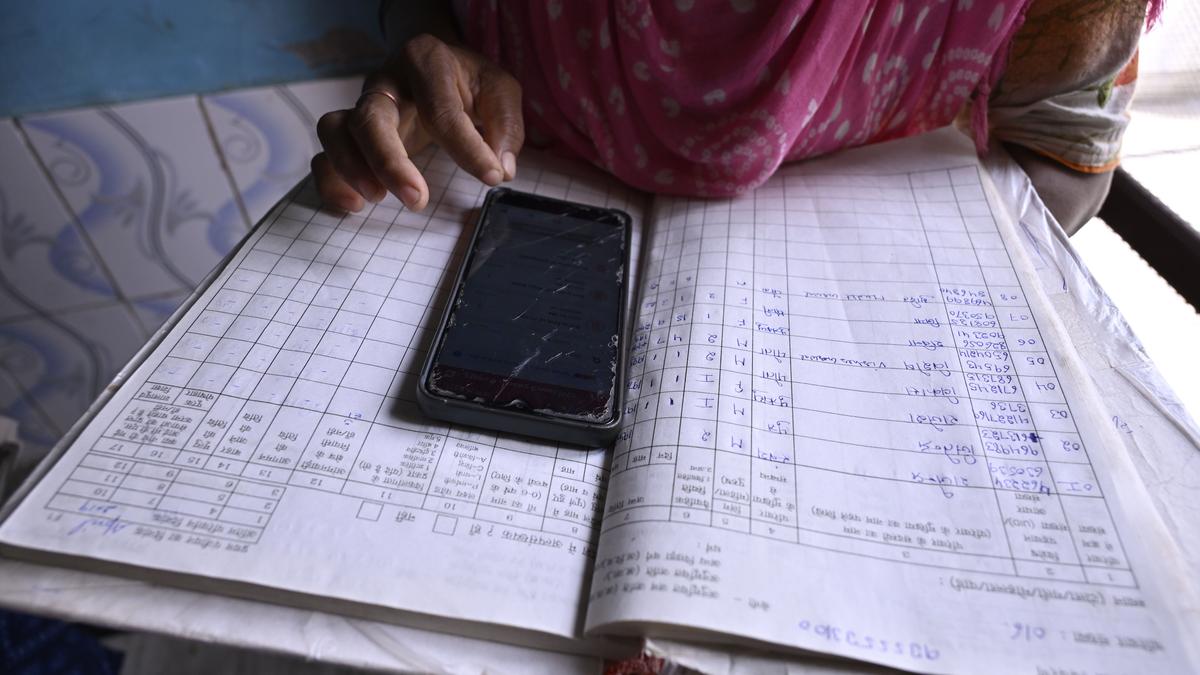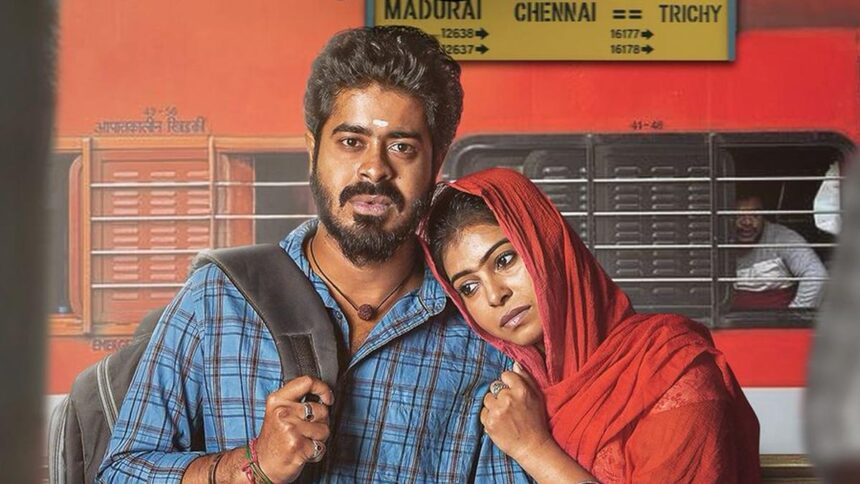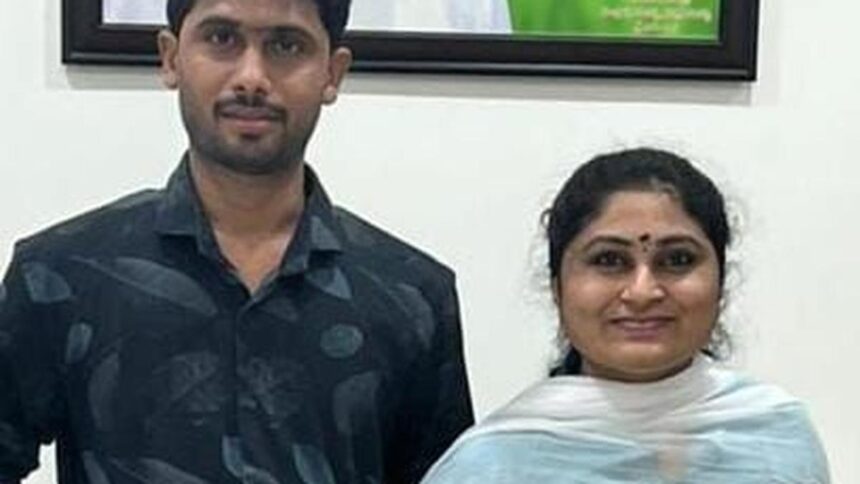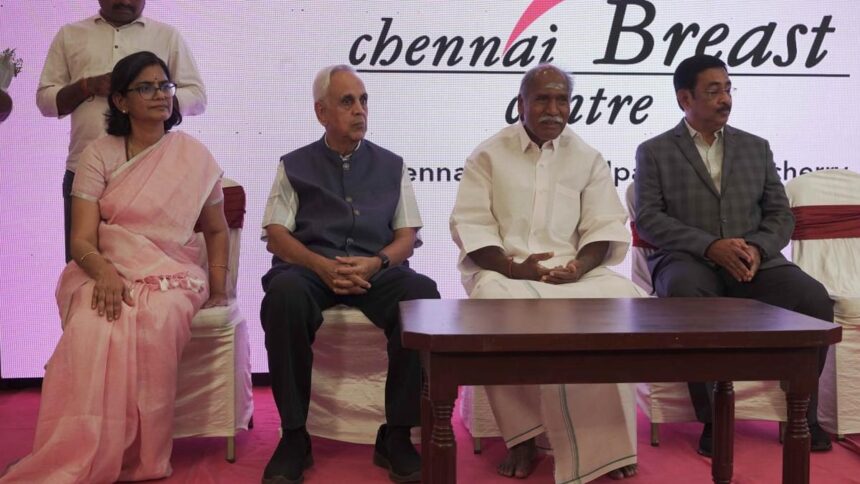
An anganwadi worker trying to register a beneficiary on the Centre’s Poshan Tracker app in Rohtak, Haryana.
| Photo Credit: SHIV KUMAR PUSHPAKAR
After completing her pre-school duty, Usha Rani, a 47-year-old anganwadi worker, walked through the winding alleys of Marodhi Jattan village in Rohtak, Haryana, to meet her assigned beneficiaries – seven pregnant women and three lactating mothers – and get them registered on the Poshan Tracker app for availing dietary benefits.
The facial recognition of her beneficiaries on the app, made mandatory by the Centre since July 1, has been pending. Ms. Rani tried numerous times to get them registered, but an ‘error’ message popped up every time. The anganwadi worker apologised to the beneficiaries for the inconvenience and told them she would try to get them registered soon so that they can avail themselves of the take-home ration and other benefits.
The Union Ministry of Women and Child Development has directed anganwadi workers to complete the authentication of beneficiaries, which includes facial recognition and Aadhaar e-KYC on the Poshan Tracker app. The initiative is for monitoring the implementation of Poshan Abhiyaan, a health scheme to improve the nutrition parameters in children and women.
The Ministry has also ordered registration of all beneficiary children through their guardians’ or parents’ Aadhaar cards on the app.
Under the scheme, anganwadi workers and helpers are tasked to provide supplementary nutrition for infants, lactating and pregnant mothers, pre-school education, health check-ups and immunisation for children up to six years.
Ms. Rani said getting the beneficiaries registered on the app is not as easy as it seems. She mentioned that in some cases, the app fails to register the women beneficiary’s face.
Moreover, there are a few cases of the beneficiary’s name being misspelt on their Aadhaar card, which the app does not accept.
Another anganwadi worker, Sushila, 44, who does not know how to operate a smartphone and relies on her daughter, Monika, 22, for help, said that poor Internet connectivity at some places and technical glitches in the app at times are other hurdles.
“In one case, we tried for more than 30 minutes to get the facial recognition of the beneficiary done. We attempted multiple angles and locations, but in vain,” said Ms. Sushila.
A pregnant woman in the village, who did not wish to be named, said, “My husband has lost his mobile phone, and my Aadhaar card was linked to his number, as I do not have a phone. To register on the Poshan app, my husband’s number must be active. I have stopped receiving the dietary supplements as I am not registered on the app.”
Digital divide
While the Ministry has maintained that integrating technology into its programmes ensures that benefits reach the last mile swiftly and transparently, the beneficiaries argue that digitisation has only increased their problems.
According to the ‘Comprehensive Modular Survey: Telecom, 2025’ by the Ministry of Statistics and Programme Implementation, 74.2% of women in rural Haryana have access to a mobile phone, against 94% men.
Ms. Rani said she wants to keep up with digitisation, but anganwadi workers have not received any specific training for this purpose.
Published – July 18, 2025 01:37 am IST





















